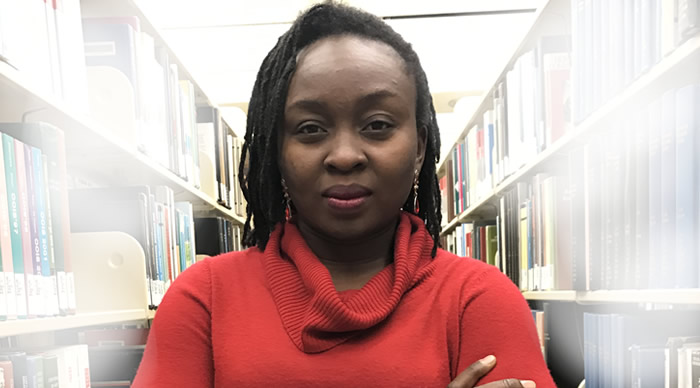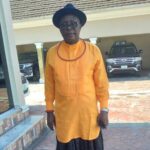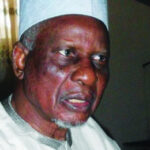
Those whose understanding of Saturday’s presidential election is that the Labour Party played the “spoiler” for the Peoples Democratic Party miss the significance of the moment. As of now, the PDP is effectively dead and the LP is the new opposition party. The PDP presidential candidate might have won many votes, but they lost on multiple levels. There are enough reasons to be suspicious of the outcome of the figures from the election, but if the results from a place like Enugu are anything to go by, the PDP will hardly recover. Their role from 2023 upwards will be mere maintenance of whatever gains they can still keep made and not much else.
Some of the communities the LP presidential candidate Peter Obi cleared have been voting PDP since 1999. For the party to lose so badly in that region, their so-called structure lacks grounding. It suggests the people there are done with them and ready to move on to other things. That will not be entirely surprising. The APC ran an incompetent government for eight years, and the PDP was a feeble opposition throughout. Apart from a few whimpers here and there, they were barely alive to energise Nigerians or even hold the APC accountable. You would not know that they were once a party so formidable that they once boasted they would rule Nigeria for 60 to 100 years. They deserve to die.
Now that a new day is here, what will Peter Obi do with what he has started? Where will he go from here? I am still pondering, and I will spend the next few weeks scouting for insightful post-election analyses to enlighten me on how to correctly account for the Peter Obi phenomenon. As expected, people are reaching for the obvious explanations of religion and tribe, but those feel insufficient. The coming weeks will offer more clarity. But I hope Obi knows that what he achieved is phenomenal. I hope he allows himself to reflect on the import of his votes and astutely plan where to go from here. Something has been handed over to him, and what he does with it will be the subject of history.
When all this started, some analysts boasted Obi’s loss would be colossal. Those who said his aspiration was impossible now have to reckon with their poor apprehension of the times. Evidently, they had no idea how much the ground beneath their feet had shifted. Those at the forefront of writing the “obituary” of the movement should see the passion and patriotic commitment of Obi’s supporters and learn that their pens no longer hold the might to make facultative pronouncements.
The shortsighted said the “Obi-dients” were a mere social media phenomenon and could never contend with those “on the ground” and running a formidable structure. But look! For the Obi-dients to threaten the people who have been cultivating their “structure” for 23 years such that their thugs had to resort to voter intimidation and violence, it says a lot. If the Obi-dients achieved this much in a relatively short time and under the conditions they did, imagine if the election had been genuinely free and fair.
For years, I looked forward to a third party breaking the impasse between the APC and the PDP, but nothing quite worked. In my own way, I have supported the efforts of third parties hoping for an organic coalition that will be a radical alternative to the existing—and oppressive—feudal structures of political organising. The biggest revelation of this season might not even be that that third party of my dreams has finally emerged but that the opposition Nigeria has been missing for eight years has now fallen into place. How Obi structures the immense gains he made in the past year will go a long way to determine our collective fate under the incoming presidency.
Go to court, but under which government?
Of all the pathetic stories that emanated from Saturday’s election, perhaps the one I find most annoying is the Kano State Commissioner of Police Muhammed Yakubu saying the alleged underage voters on the queue during the election might just be adults suffering from stunted growth. Nothing expresses the farce of Nigerian institutions more aptly than a de-balled police boss making unimaginative excuses for a crime he should be taking seriously. That is why I find it amusing that some people’s response to the allegations of the many electoral malpractice in Saturday’s election have been to tell the aggrieved parties to “go to court.” Which court and in which country is that? If a CP can deny a truth evident to every eye, what does anyone hope will come out of the courts where it is people like Yakubu that will be called to testify?
What took place on Saturday feels like a replay of the 2007 presidential election. Apart from the blatant underage voting to which a law enforcement agent wilfully blinded himself, there were also multiple logistics issues, voter intimidation, blatant rigging in some places, and numerous instances of Independent National Electoral Commission itself abjuring its own laid-down procedures.
Before the usual suspects start dismissing genuine concerns, I hope they know this was never a do-or-die for some of us. We understood that there were only two possible outcomes and prepared for that. Someone would have won anyway, but the victory cannot be stolen. It must be earned appropriately. If the election was well-conducted, we would properly assess the factors that worked (or not) and take some lessons for the future. But when results get muddled, one cannot properly sort out the logic that underwrote voting distribution.
Those who think going to court will redress these must have forgotten we have been here before. The 2007 election, probably one of the worst in Nigerian history, was marred by widespread violence, vote-rigging, systematic disenfranchisement, a severe shortage of ballot papers, the widespread intimidation of voters, ballot boxes snatching by thugs, open vote buying and other irregularities. The election conduct was so shameful that the prime beneficiary, the late Umaru Yar’Adua, acknowledged he was a receiver of stolen goods. In 2014, President Goodluck Jonathan alluded to that election. He noted that whenever they travelled abroad, they were taken to task so frequently that they were embarrassed and angry at their interlocutors simultaneously.
But the more interesting part is that the Supreme Court upheld the results despite their admitting to a usurped mandate. Those on whose behalf the election was stolen did not abdicate despite acknowledging they took what was not theirs. So, when people say the aggrieved parties of the 2023 elections should go to court, what do they imagine would happen there? That a Nigerian court—at any level—will cancel a presidential election in which there is already a sitting president, and order a fresh batch of elections? We all know that is highly unlikely. At best, the case will end up in the Supreme Court where they will perform another legal abracadabra. So, pointing the people who are aggrieved in the direction of the courts is either gaslighting or pure dishonesty.
The proponents of going to court to protest should highlight what they think will be different between what happened in the courts in 2007 and 2023 when neither our societal values nor organising capability has significantly improved. At every level of governance, we are still corrupt, disorganised, and lacking the moral will to do the right thing. The courts we are asking those cheated in the election to take their cases are a stark reflection of the weaknesses and the perennial degradation of our institutions.





